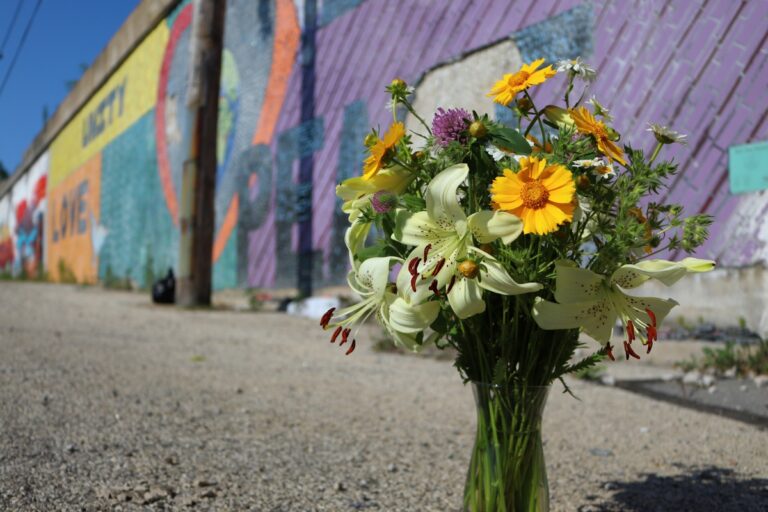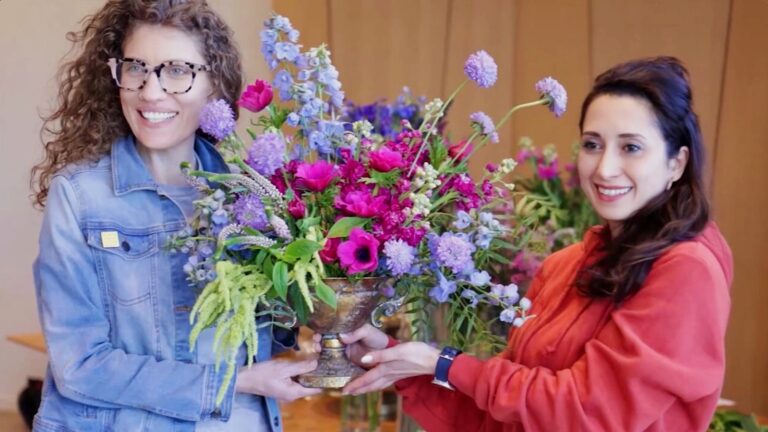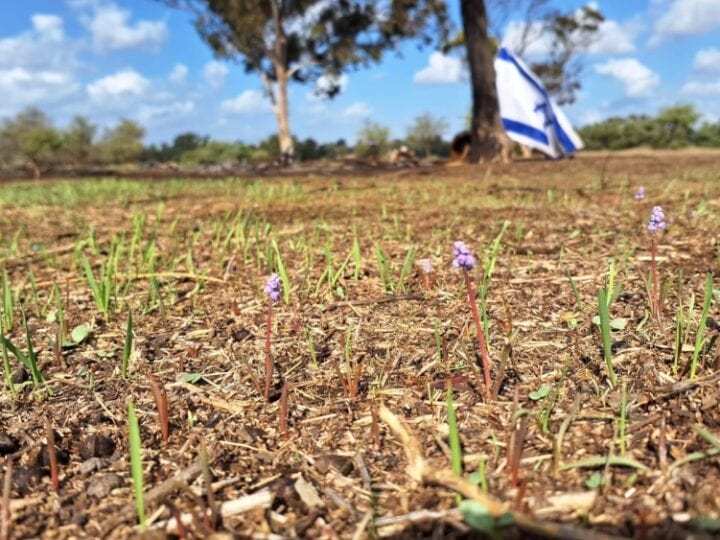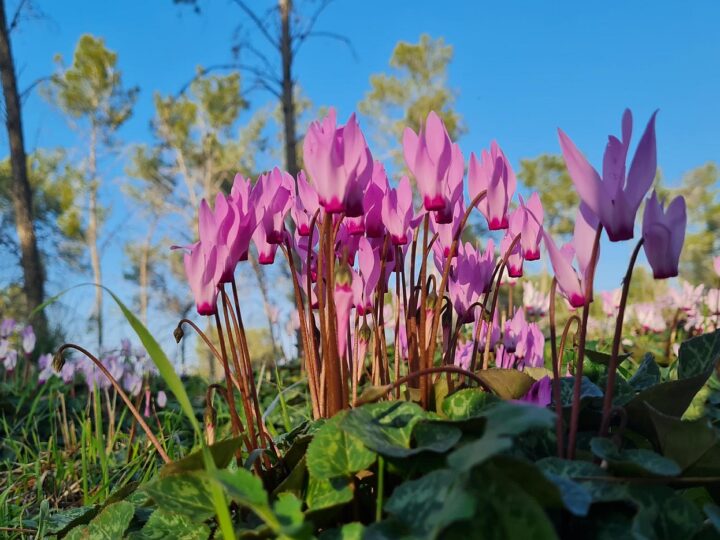If you heard that an official delegation from Chicago came all the way to Israel to learn how to arrange flowers, you might think you were being pranked.
That is exactly what was on the mind of Zarina Wasser, an expert in the field of event and floral design from Jerusalem.
Wasser said when she first received an email from someone claiming to be from the Consulate General of Israel to the Midwest, she assumed it was a scam, never bothering to reply.
“I almost missed out on the opportunity. I saw the long email in English and thought to myself, ‘This is a scam.’ I got a follow-up email. It was shorter, but it was saying the same thing, that they were looking for someone who can teach flower design to guests from Chicago,” she says, adding that even the second email did not convince her to reply.
“Eventually, I got a direct message on Instagram. So I showed the message to my partner, who’s an American, and he helped me figure it all out.”
Helping at-risk youth
The request was definitely for real.
Wasser relates that the consulate personnel (she calls them “amazing, out of this world”) hoped she could teach a professional course by special request of Southside Blooms, a sustainable flower shop run by Chicago Eco House, a nonprofit that employs at-risk youth.
Finally, the wheels on the unusual project spun into motion.
“My job was to provide them with skills and techniques on designing flowers for Jewish events, so they could provide services to the Jewish community in Chicago. The idea was that I would teach them and they would teach the at-risk youth who work at their shop,” says Wasser.

The workshop was meant to be taught over the course of a month, but due to time constraints “we managed to go over it in 12 hours at an event hall that I had rented out.”
Flower girl
The 45-year-old mother of three was born and raised in Baku, Azerbaijan. In her late teens she moved to Israel and settled in Jerusalem, where she studied cello at the Jerusalem Academy of Music and Dance.
Once she had children she quit music and opened a daycare center where she taught the children music.
“I saw how much it helps their development. I created special programs for the children and during that process, I fell in love with art and creativity,” she tells ISRAEL21c.
As a result, Wasser enrolled into Shenkar College of Engineering, Design and Art to study event design. “At a certain point I decided that I wanted to stay in the industry of event and flower design,” she says.
Wasser’s business became so successful that Hannah Blackwell, who cofounded Chicago Eco House with her husband, Quilen, personally requested to work with the Jerusalemite once she saw her work on Instagram.
“Hannah said it was a dream of hers to learn from me,” says Wasser, who admits that she is still in disbelief.
“I am in Jerusalem and they’re in Chicago! It was such an honor. They’re not Jewish, but they have a mission. They want to help their city, while also helping the at-risk youth. I was amazed by their kindness,” Wasser says of the Blackwells.
Flowers for peace
Chicago Eco House opened its flower shop in 2020. The goal of the project (tagline: Flowers that Empower) is to train and hire at-risk people, aged 17-24, to scout empty lots across Chicago and turn them into sustainable flower farms.

Last year, Yinam Cohen, consul general of Israel to the Midwest, approached the Blackwells, offering to partner with the nonprofit to help it grow.
That partnership blossomed and culminated in February 2023 with the Blackwells traveling to Israel to take part in Wasser’s training course.
“We picked [Zarina] because we felt that she was on top of her game, at the top of the event design world … and she went the extra mile for us,” Hannah Blackwell told a webinar organized by the America-Israel Friendship League (AIFL) in the wake of their Israel trip.

“Flowers bring a lot of peace. One young woman was telling how she used to have a pretty hot temper, and how working with flowers has helped her to feel calm. It also gives them financial peace. When you’re grasping for basic needs, you can’t focus on anything else — not school, not relationships.”
Dozens waiting their turn
Quilen Blackwell told AIFL there are dozens of people on the waiting list who “want an opportunity to work for us. The consulate has been helping us to build connections within the local Jewish community, not just in Israel. It has helped us grow our social enterprise.”
This was his second time visiting Israel. “The first time I was part of an African American delegation visiting the tech hub outside Tel Aviv. But what impressed me the most was not the tech that Israel has, but the story behind it,” he says.
“It wasn’t that long ago that Israel was considered a third-world country. It’s amazing that within a few decades Israel went from being a country that was fighting multiple wars, people trying to wipe it off the face of the earth, struggling to develop economically, to now being an economic powerhouse in the Middle East.”
Blackwell adds that Israel’s story resonates with him because “we [in the inner city] are now where Israel was a few decades ago. We are trying to figure out how to get ourselves on the economic map.
“That was the greatest inspiration.”















